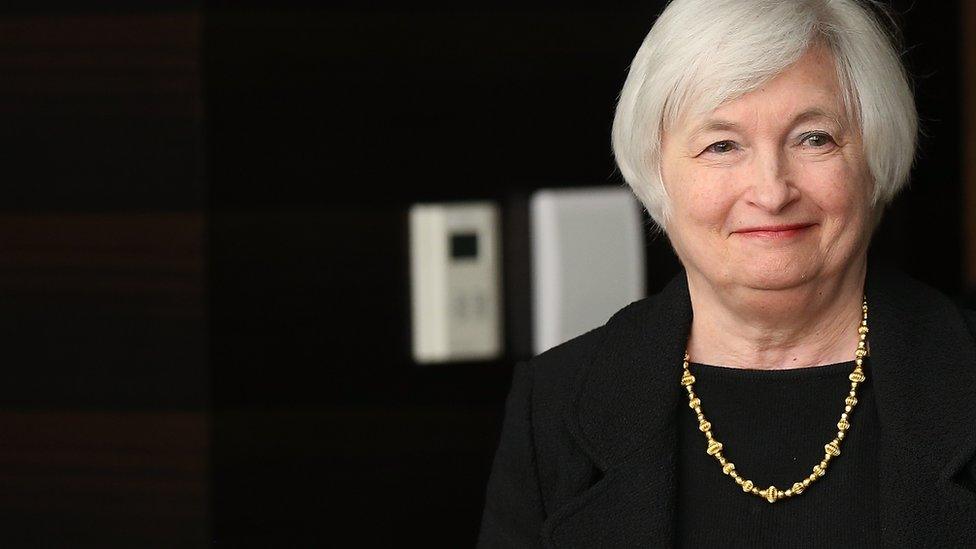US looks to loosen Dodd-Frank crisis-era banking rules
- Published
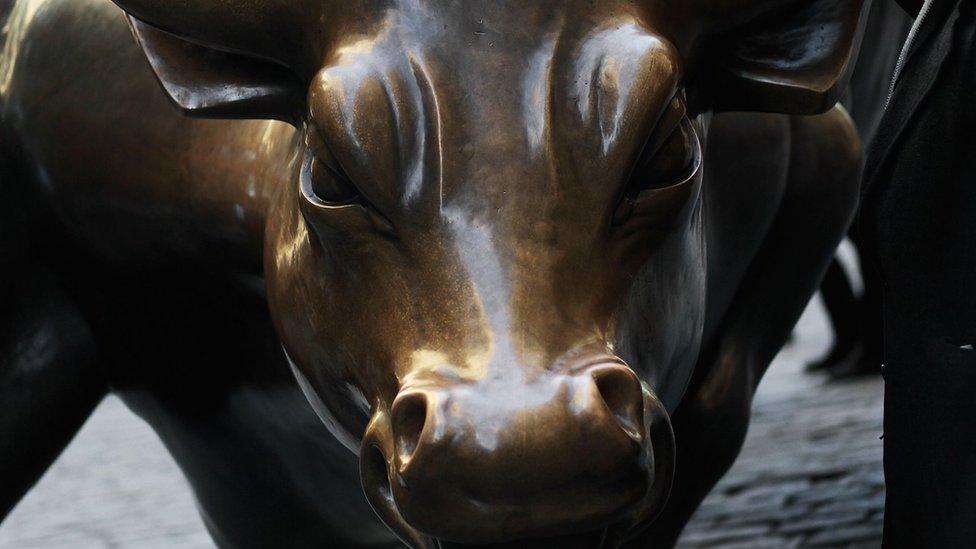
The US is poised to loosen banking rules imposed after the financial crisis
The US Senate is poised to loosen banking rules instituted in the wake of the 2007-2009 financial crisis, marking a key turning point in the long-running debate over the regulations.
The proposal would reduce the number of firms subject to strict oversight.
Supporters, who include Democrats and Republicans, say the plan will offer relief to smaller, community banks burdened by high compliance costs.
Critics say measures go much further, relaxing rules on major institutions.
The Senate began its debate on Wednesday and is expected to approve the measure in a vote as soon as this week, sending the bill to the House. The House has already shown its appetite for change, passing a far more radical rollback last year.
What's in the new bill?
This proposal, formally the Economic Growth, Regulatory Relief and Consumer Protection Act, is more narrowly focused on banking and lending rules than the House effort.
The changes include:
Raising the threshold for strictest oversight from $50bn to $250bn. That leaves about a dozen firms subject to the toughest rules, but supervision would ease on about two dozen banks, including international players such as Barclays and Deutsche Bank's US operation.
Creating exemptions from the Volcker Rule, which bars banks from using their own funds to engage in risky trading or sponsoring their own hedge funds to do so.
Providing a new way for banks to satisfy a requirement that they are lending to qualified borrowers and relaxing requirements to report demographic information about home loans to the government.
Directing the Federal Reserve to tailor regulation for the biggest banks and adjusting calculations for requirements for holding capital in the event of a crisis
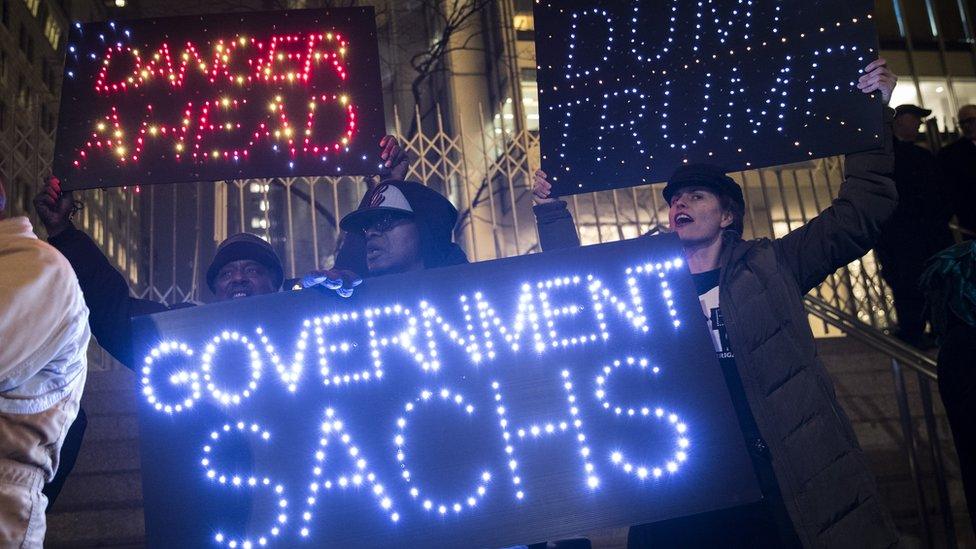
Activists rally in New York in February 2017 against President Donald Trump's reported plans to loosen Wall Street regulations
Why is this happening?
The campaign to revise the 2010 banking rules, known as Dodd-Frank, started almost as soon as the sprawling measure was signed.
Critics said that the law - which established the Consumer Financial Protection Bureau; created capital requirements and stress tests for banks; and instituted new lending requirements among other changes - was too complicated and costly, stifling economic growth.
Republicans pledged to overhaul the law; President Donald Trump promised a 'haircut'.
Smaller, community banks, which have lost market share since the 1990s, helped galvanise bipartisan support for reform. They argued that the rules imposed disproportionate costs on them and gave bigger institutions with more money and muscle an advantage.
What are people saying about the bill in the Senate?
Mike Crapo, a Republican from Idaho, has stewarded the bill through years of negotiations. He says the changes will make it easier for people and businesses to get access to credit, while preserving much of the regulatory framework.
The legislation has also won support from some Democrats in moderate states, such as Montana and Virginia. (Virginia Senator Tim Kaine, who was Hillary Clinton's vice presidential nominee, is among the backers.)
Elizabeth Warren, a Democrat who represents Massachusetts, is spearheading opposition to the bill. She argues it will weaken consumer protection and open the door to risky behaviour that banks want to pursue for higher profits.
"We've seen this movie before and we know how it ends," she said.
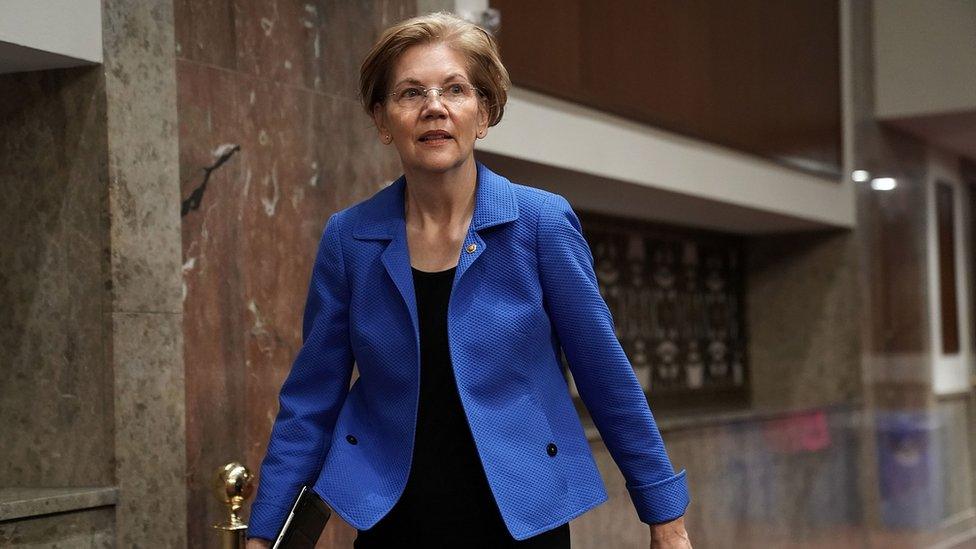
Massachusetts Senator Elizabeth Warren is spearheading opposition, but the measure is expected to pass
And elsewhere?
Outside of the Senate reaction has been mixed.
Sheila Bair, former chair of the Federal Deposit Insurance Corp, has warned against a part of the bill that would change the capital requirement calculations.
Phil Angelides, a former California treasurer who led the US inquiry into the causes, said policymakers are using a "deceptive guise of aiding regional and community banks" to undo important protections.
"Its provisions would put us on the road to re-creating conditions that the [inquiry commission] concluded led to the 2008 crisis," he wrote in a letter.
- Published8 February 2017
- Published4 February 2013
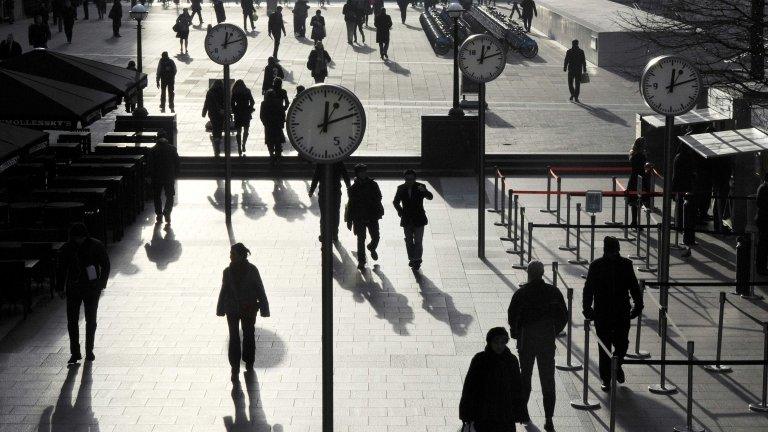
- Published25 August 2017
